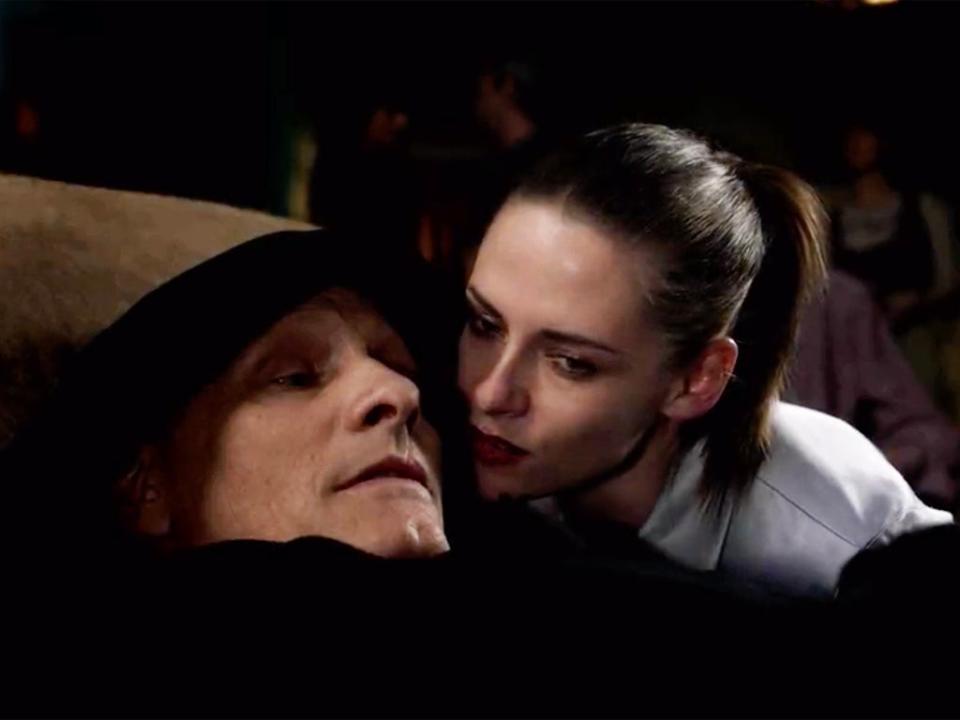Crimes of the Future provokes walkouts and six-minute standing ovation at Cannes
David Cronenberg’s new film Crimes of the Future prompted both walkouts and a six-minute standing ovation at Cannes.
The horror film, starring Kristen Stewart, Léa Seydoux and Viggo Mortensen, features body transformations and mutations in a dystopian universe.
According to reports from viewers at the film festival, some walked out in the first five minutes, while others exited the theatre later after a scene involving Seydoux and an open wound.
Ahead of its premiere on Monday (23 May), director Cronenberg had stated that he expected some to leave the screening.
“There are some very strong scenes,” he previously confirmed before predicting: “I mean, I’m sure that we will have walkouts within the first five minutes of the movie. I’m sure of that.
“Some people who have seen the film have said that they think the last 20 minutes will be very hard on people, and that there’ll be a lot of walkouts. Some guy said that he almost had a panic attack.”
While there were some early departures, The Independent’s reviewer described the reaction to be “muted”, while describing the film as being “more like a cerebral art gallery installation piece than a full-blooded dramatic movie”.

Other reports have confirmed that the audience was receptive of the picture by the end, with applause lasting six minutes. (Triangle of Sadness, starring Woody Harrelson, received a staggering eight-minute ovation the day before.)
In 1996, Cronenberg’s film Crash – based on the J G Ballard novel of the same name – received an infamously extreme response when it was screened at Cannes.
With its premise about people who use car crashes for sexual arousal, the film was considered highly controversial and members of its festival audience stormed out of the theatre.
At the time, jury president Francis Ford Coppola said that some jurors “abstained very passionately” to the decision to award Crash a special jury prize, while some British critics accused the director of moral depravity.

 Yahoo News
Yahoo News 